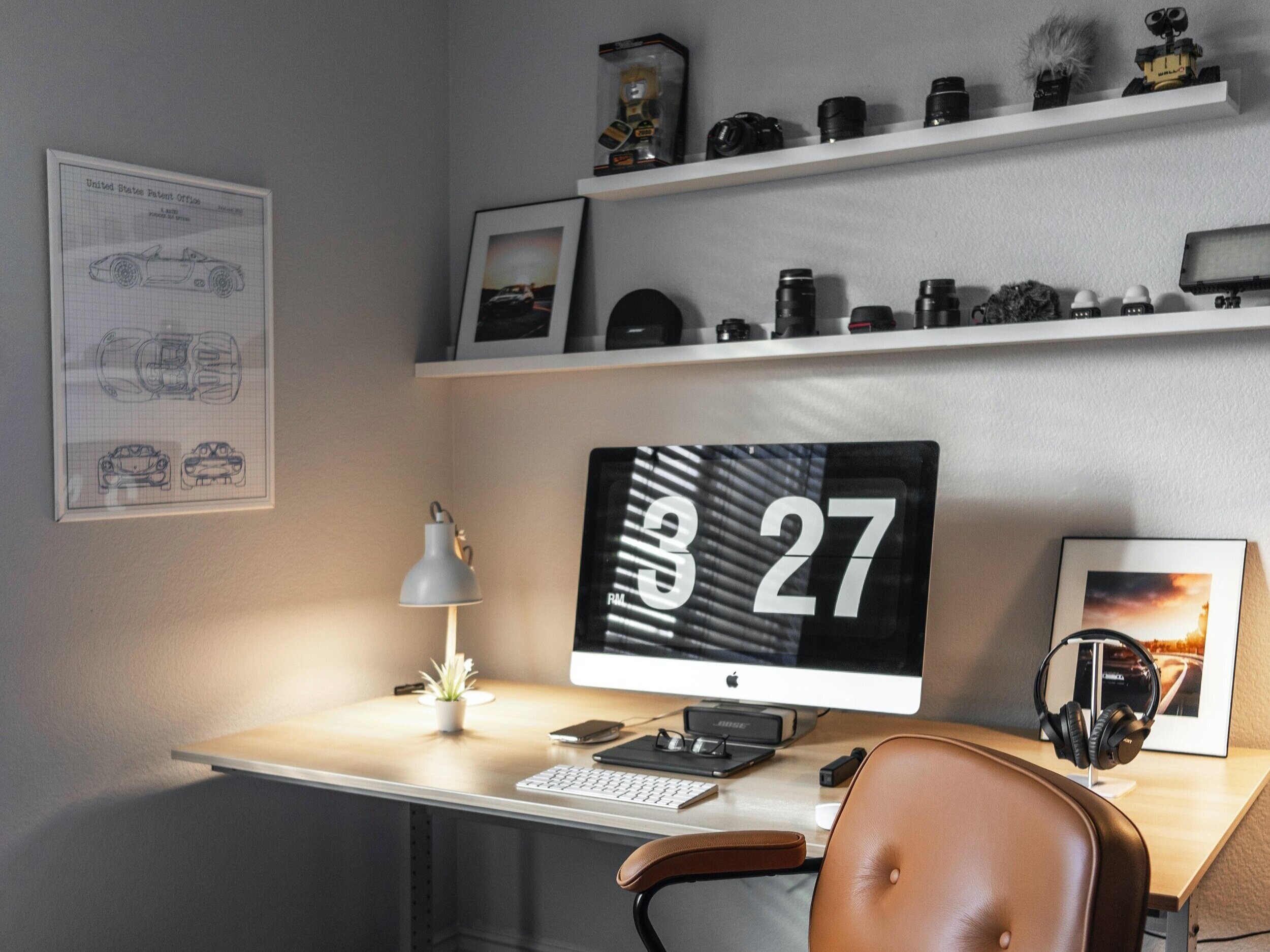Making Space for Doing Business: Home Office Solutions
Many people have recently discovered the mix of advantages and disadvantages of working from home. While some head back to offices, still others have decided to continue working from home on a permanent basis, or increase the number of days they work remotely from home.
There are some clear benefits — from leaving behind the cost of office space rent, the added costs of a daily commute — in gas and wear and tear on the car, or public transportation costs — not to mention time stuck in traffic, and the cost of daily lunching out.
Of course, there are also downsides to working from home. Household distractions, noise, and simple trying to focus on work while the rest of your family goes about their daily routine.
If you are committed to making "work from home" work for you, it's time to move away from the kitchen table or the couch or the makeshift desk set up in the guest bedroom. It’s time to create a dedicated space.
Define - Design - Build: Home Office Options
Start by considering all the options available inside your existing home to create your ideal home office.
Remodel an existing space as a home office
Do you have a room that could become a dedicated office? Or is there other underused space you can reconfigure to accommodate a desk and provide you with privacy for work? This is often the best solution if you live in a condo or have a home in a gated community.
If your home office plans include interior construction and remodeling work, keep in mind that your Homeowners Association (HOA) will likely require board review and approval of your plans before you proceed — check with them first.
That rarely used guest room may be the most obvious space to turn into your full time home office. Unless you have frequent guests or extended stays, that guest room is likely to be one of the most under-utilized space in your home, and represents a great opportunity to design a well-functioning home office.
Look for ways to reimagine the room as a workspace: Built-in bookshelves can replace a closet, added ceiling lighting can provide more ideal light for work, and electrical outlets can help power the technology you use on a daily basis.
Giving up the guest room that is only used a few weeks a year to have a well-functioning and private home office may be a worthwhile tradeoff. As one client said, "For the cost of putting our family visitors in a hotel for a week when they visit once a year, I gain an ideal home office I use every day."
Build a new workspace at home
If you own a single family home with some land, you may have additional options to consider outside your house. Depending on zoning regulations, for example, you may be able to convert a garage or attic space.
Or you may consider building an addition or a separate structure on your property — known as Accessory Dwelling Units (ADU). Note, this is not likely to be a viable option if you own a home in a gated community subject to specific HOA and zoning regulations.
Whether converting an existing room or constructing a new addition, or adding a separate building, be sure to consult with your HOA as well as understand the city and county zoning.
Taking time to consult with your contractor and architect will give you greater insight into the possibilities and help you anticipate the challenges, so you have the confidence to create a dedicated home office that suits your living and working situation.
more ideas on home office solutions
Whether you’re planning for the short- or long-term, we hope these tips help you make the perfect home office. If you’re thinking of renovating your home to create a custom office space, lets talk! We will help you create the home office of your dreams.
Thinking about building a custom home?
Get your free copy of our Guide to Custom Home Building. Our 12-page guide explains your options, what to expect, where to start, and how to put together your dream home team, along with worksheets to help you start planning for your custom home.



